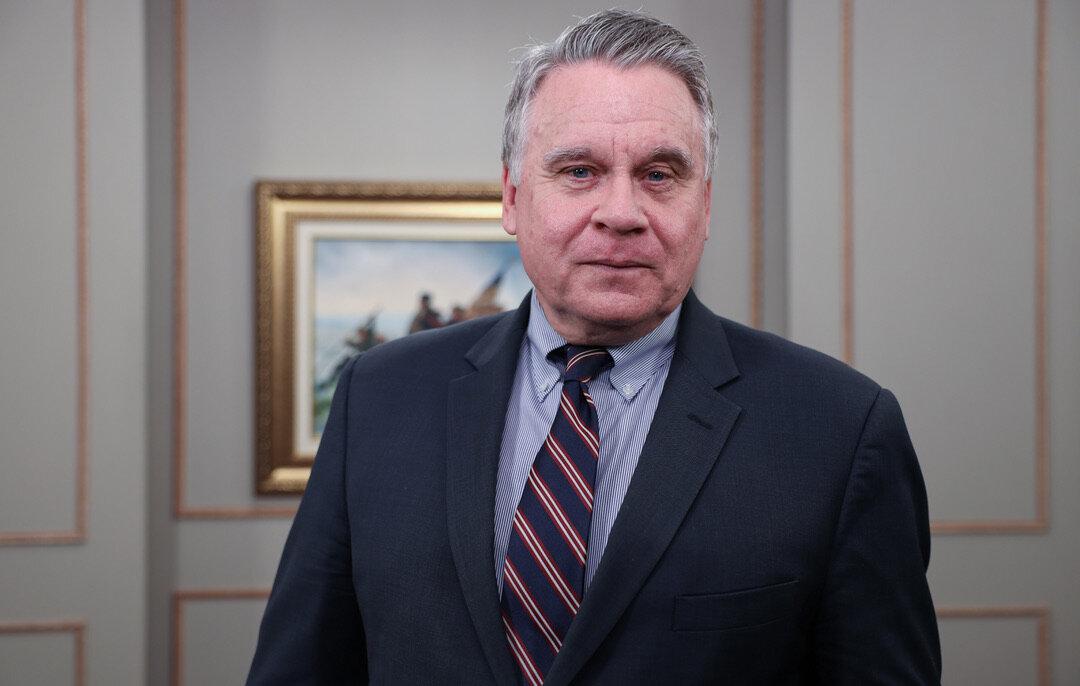“The Chinese communists game the system,” Rep. Chris Smith said. “People are afraid to stand up to them.”
In this episode of “American Thought Leaders,” host Jan Jekielek discusses human rights and China with Smith, a representative of New Jersey’s 4th district. For the past four decades, Smith has been one of Congress’s most vocal critics of the Chinese Communist Party, as well as the U.S. policies that have enabled the regime’s abuses—from forced organ harvesting of Falun Gong practitioners to genocide of the Uyghur Muslims in Xinjiang.
They use it against the Falun Gong, Christians, Buddhists, Uyghurs—any political dissidents.
And we’ve enabled them. On May 26, 1994, Bill Clinton de-linked human rights from trade. That’s when the Chinese Communist Party said, “These guys are bluffers. They’re fake.”
In 2014, I introduced the Hong Kong Human Rights and Democracy Act, and all the big know-it-alls said, “Don’t do that. [Xi Jinping will] never go after the UK–Sino treaty. He won’t undermine the special nature of Hong Kong.” I said, “Yes, he will. You don’t understand Xi Jinping. He’s a dictator with few equals in the world.”
And sure enough, they’ve crushed Hong Kong. It’s no longer a bastion of freedom.
The Chinese communists game the system. People are afraid to stand up to them.
I am the chief Republican sponsor of a bill that I hope the Biden administration implements. It says any products coming out of Xinjiang, the presumption will be they were made in concentration camps unless proven otherwise.
We should do that with the rest of China. I’m going to introduce more legislation soon. It will support serious and sustained progress in the area of human rights and will apply to all goods coming out of China. We have leverage. They’re an export economy. Without that, the economy grinds to a halt. And if that’s what it takes to protect people from slave-like conditions, then we have to do it.
And we just keep misperceiving the Party’s true intent, which is always to consolidate and expand its power. Look at the Confucius Institutes in our country. The Chinese give money to a college and handpick the Chinese teachers for these institutes. It’s all about soft power.
Years ago, Steven Mosher was a doctoral student at Stanford University who broke this story about the use of forced abortion to implement China’s one-child policy. What did Stanford do? They cashiered Mosher out of the program because they wanted to keep their access to China.
A lot of people always have a good word for the Chinese dictatorship. Let me be clear. I stand with the Chinese people who are being oppressed, not with the oppressor. The Chinese people deserve democracy. They deserve everything that’s embedded in the universal declaration of human rights.
So there was a hatred toward the Falun Gong, demonstrated by the Party’s use of torture and murder. And of course, organ harvesting became not just a means of repression, but also a way of making huge amounts of money by selling their organs.
In 2018, Marco Rubio and I were co-chairs of the China Commission. We wrote to the IOC, saying, “Don’t go to China. Find a different venue. You can’t do this in a country that horrifically oppresses its own people and is committing genocide.”
I mean, that’s the worst crime on the face of the earth, and they’re doing it. There’s Xi Jinping smiling for the cameras at the opening ceremonies while butchering people.
One more thing: We had some corporate sponsors of the Olympics appear before our China commission. These people couldn’t say, “Yes, they’re committing genocide, and this has to stop.” They want to keep their market share. They want to make money. I’m a capitalist and believe in making money, but with conditions. You shouldn’t make money on the backs of repressed people.
They were focused on prisoners in general, political prisoners mostly. And then the Party started going after the Falun Gong, and some others too, to take their organs.
It’s very lucrative. Lots of money is made. And they just take their organs while the victims are still alive. They don’t execute them and then take them. They take them so that they’re as fresh as humanly possible. Then they sell them.
People come from abroad and get these organs. It’s a nightmarish abuse. So I have a bill, and Sen. Tom Cotton [R-Ark.] has the companion bill. We’re working hand-in-glove together. We want to hold to account all those who are part of this process.
Taiwan has its flaws. So do we. But it’s not a dictatorship, and that’s what the Party wants to impose on it.
So we need to employ a robust diplomacy. Unfortunately, our horrific exodus out of Afghanistan sent precisely the wrong message to every dictatorship in the world, from North Korea to Iran, to Putin, to Xi Jinping.
But if we were to reconnect human rights with trade and say, “We’re not kidding. Stop abusing your people. There needs to be serious efforts to protect the rights of your people,” I think some Chinese moderates might emerge. But right now, the direction is all wrong.
Trade is our most potent means to get them to change.
We also need to be wiser as policymakers and play more chess and less checkers. We should think about what the next moves of this dictatorship might be and not enable it or ignore it. The people of China deserve better.






